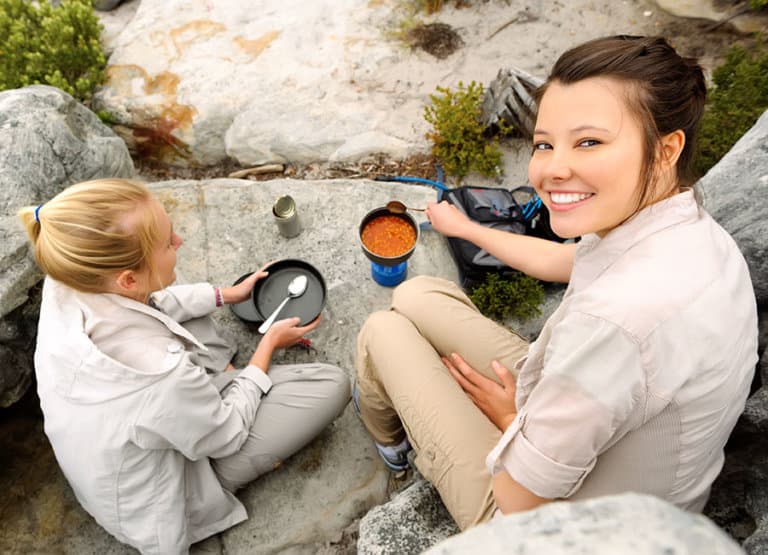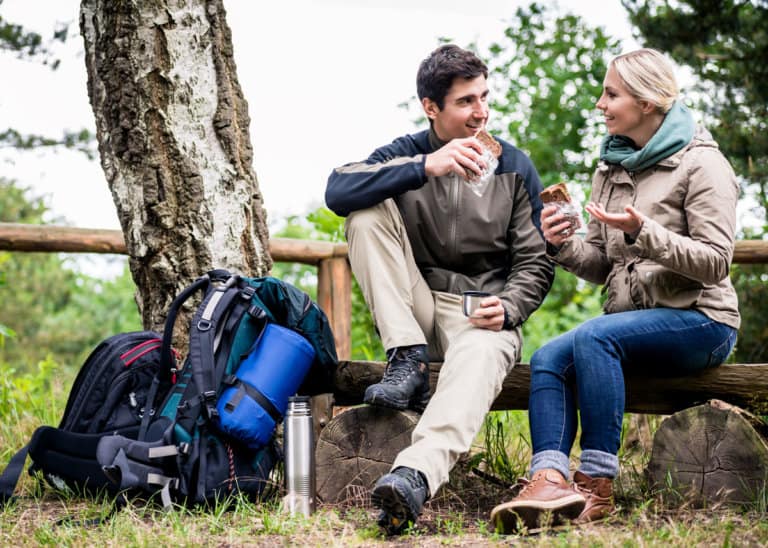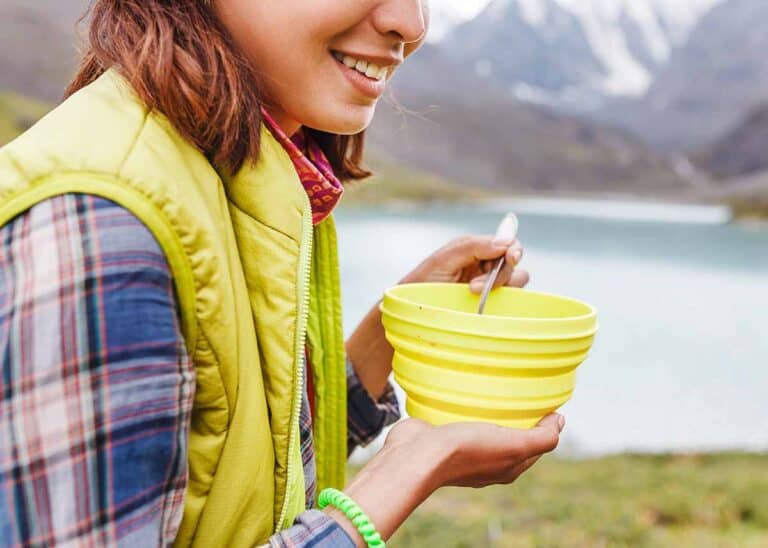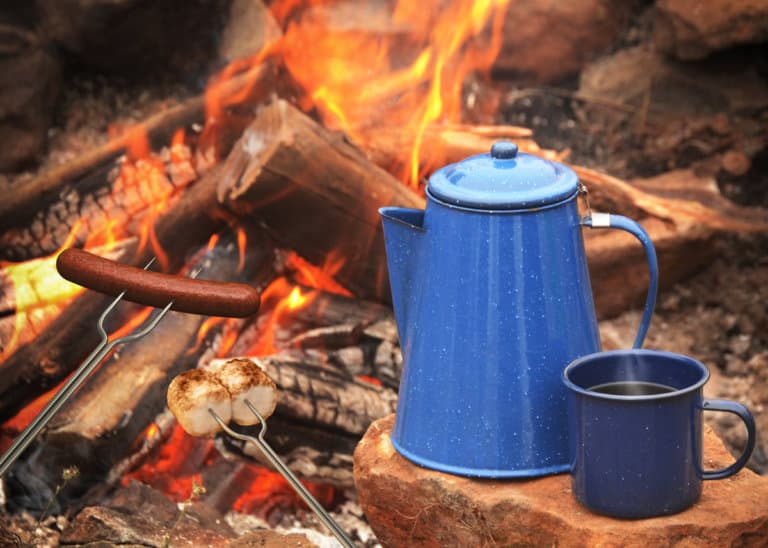How to Pack Eggs for Camping (6 Easy Ways) Safe & Tasty Breakfast
Eggs are a great source of protein for a long, active day hiking, fishing, and chopping firewood. I love starting my day with some fried eggs over the campfire. What are the best ways to pack eggs for your camping trip?
Here’s how to pack eggs for camping. Storing eggs in a cooler will keep them cold and crack-free. Pre-cracking eggs mean less worry of breakage. You can avoid temperature and breakage concerns by bringing dehydrated eggs. Or you can hard boil them or coat them in mineral oils.

As you consider which foods to bring on your next wilderness adventure, concerns about how to safely pack eggs for camping may deter you from taking them with you.
Below are six easy ways to pack eggs if you’re wondering how to pack eggs for camping that will give you the confidence to put them back on your list.
And there are two primary concerns when packing eggs for a camping trip: 1) Don’t break the eggs and 2) don’t let them get warm.
Here’s how to bring eggs camping. And avoid crushing them and keeping them cold.
1. Use a Cooler
- Pros: Protects From Breakage
- Pros: Keeps Eggs Cold
When considering how to pack eggs for camping, know that raw eggs can quickly grow a bacteria called salmonella if left unrefrigerated for too long.
The U.S. Food and Drug Administration (FDA) warns consumers to store eggs at 40°F (4.44 °C) to minimize this bacterial growth.
It will be necessary to store your eggs in an airtight container before placing them into a cooler. You will then want to surround that container with either ice cubes or freezer packs. Leaving the cooler in the shade and seldom opening it will ensure it retains an ideal temperature.
Here are nine tips for keeping your cooler cold for longer while camping.
Realistically, you’ll have fresh eggs for the first few days and then switch to dehydrated eggs for the second half of your trip. Unless you have access to more ice and fresh eggs.
Do eggs need to be refrigerated?
Generally speaking, eggs don’t have to be refrigerated. But there are a few factors.
And while Americans, Canadians, Australians, and Japanese expect eggs to be kept cold, they aren’t the norm in most countries. In parts of Europe and many other countries, egg washing is prohibited because it damages the protective protein coating (cuticle).
Once the cuticle is damaged, the egg can be contaminated by outside sources. When the egg is washed, it removes both the chicken poop and the protective cuticle.
When we lived in Ecuador, we never saw refrigerated eggs. Here’s how we safely stored our eggs in South America.
But if you are camping in Canada, the United States, or Australia, you should plan on refrigerating your eggs for safety. In other countries, you might be able to travel unrefrigerated.
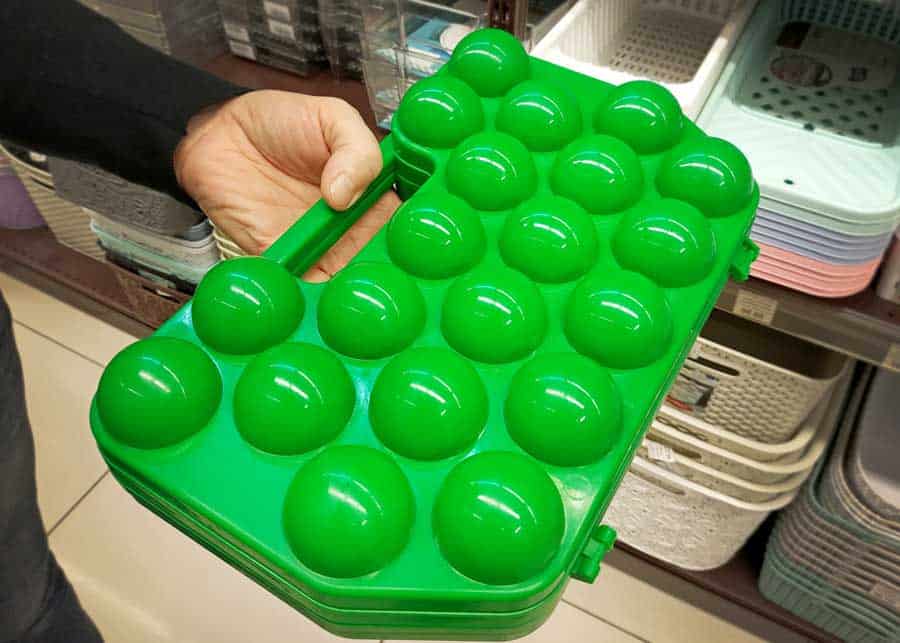
2. Safe Packaging
- Pros: Protects From Breakage
Ensure the eggs you pack for your camping trip make it safely to your destination by leaving their outer shell intact. Doing so creates a natural, protective barrier until you’re ready to eat them.
It’s also important to pack eggs for camping to minimize the chances of them bumping into each other or any container you’re carrying them in.
Doing this is particularly important if you will be heading off-road or traversing rugged terrain with your packed eggs.
The cardboard or styrofoam containers grocery stores sell eggs in is an effective approach for packing eggs for camping. However, those containers aren’t airtight and, therefore, are not ideal for submersion in ice.
However, wrapping them in bubble wrap or newspaper is an ideal way to ensure eggs remain fully intact if placed within a sealed container if you secure the eggs from a pasture or your own hobby farm.
Packing in a Water Bottle
Another type of container you may want to consider using to pack eggs for a camping trip is a wide-mouth water bottle. Packing eggs in a water bottle may be practical if you don’t plan on bringing a cooler along with you.
Water bottles make for an ideal container for transporting eggs when packing for a camping trip, thanks in large part to their wide mouths and relatively narrow bodies. The smaller the space eggs have to move about, the less likely it is they will crack.
Also, a water bottle’s screw-on lid leaves less of a chance of an egg and the ice cubes or melted water surrounding them getting loose or pouring out.
Leaving the eggshells at home means you won’t have to worry about disposing of the egg shells. This is a great way to keep bears away while camping.
If you bring shells, burning them in the campfire is the best solution.
3. Pre-Crack Them & Freeze
- Pros: Protects From Breakage
- Pros: Keeps Eggs Cold
Another great way to pack eggs for camping is to anticipate how many you plan to eat during your adventure and crack them in advance.
Placing the whole egg or separating out the yolk and whites into glass jars or zipper bags is an option.
You can put them in the freezer the night before you prepare to head out on your camping trip.
Freezing cracked eggs before packing them for a camping trip is a good strategy for keeping them at a safe temperature as they remain in an insulated bag or cooler until you’re ready to consume them.

4. Use Powdered Eggs
- Pros: No Breakage and Temperature Concerns
Dehydrated eggs are a go-to option if you want a hassle-free way to pack eggs for camping. Powdered eggs come in complete and egg-white varieties and offer the same nutritional benefits as raw ones.
As a recommendation, you might check out Judee’s Whole Egg Powder. An 11 oz package contains the equivalent of 24 whole eggs.
These dehydrated eggs are great to pack for a camping trip if you want to eliminate concerns over safe storage temperatures and breakage in transit.
Some strategies you will want to employ when packing powdered eggs for your camping trip include packing a bowl, whisk, and enough water to adequately rehydrate them.
Or you can mix them easily in a water bottle. Shaking the power will be faster and easier than whisking the powder back to life.
5. Hard Boiled in Advance
- Pros: Protects From Breakage
Boiling eggs the night before you embark on your camping trip may also make sense if you don’t plan on carrying a large cooler and cooking equipment with you.
Your goal should be to boil the eggs and place them whole in an airlock container along with some ice. You’ll then take out the hard-boiled eggs, remove their shells, and eat them as you see fit.
Eggs prepared, packed, and eaten this way should remain fresh for as long as a week, as long as they remain cold.
To extend your egg life, you can hard boil the fresh eggs on the campfire, giving you more days. This is a good solution a few days into your trip.

Cooking on the campfire isn’t too hard, but these campfire skills will make it even easier.
6. Coat Eggs With Mineral Oils / Soybean Oil
- Pros: Extends Shelf Life
Another effective strategy for packing eggs for a camping trip is to coat them in mineral oil.
This approach preserves eggs’ freshness on short trips as mineral oil extends its shelf life. Mineral oils also harden the eggs’ fragile shells, making them less apt to crack in transit.
In a recent study (linked in the previous paragraph), soybean oil was a practical, inexpensive solution to extend egg life.

You might consider combining these methods for the best success.
For example, to successfully pack eggs for camping, you might coat your eggs in soybean oil, pack them safely, and in your well-iced cooler.
Get Cracking!
And now you know how to take eggs camping.
The six ways to pack eggs for camping are the easiest approaches for ensuring you have access to this popular protein choice. The choice that’s right for you comes down to how long your adventure will last, the equipment you plan to take with you, and your personal consumption preferences.
Have a tip or method to add? Let me know in the comments!

